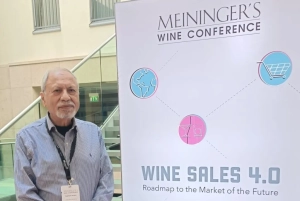Posted: Sunday, 03 Nov 2024 17:24
From Archives 2008: Wine from Kerala Kokonuts
That’s what it ought to be known as, if Sebastian Augustine has his way with the government of Kerala.
Sebastian is a former government employee, now a farmer in Kasargod district in Kerala, who got a patent in making wine from coconut in August last year and is now getting the process patented in US,EU, Canada, Philippines and Indonesia.
If the government of his state became pro-active and allowed making of wine and not treating it as alcohol in the strictest sense of the term, it would not only increase tourism in Kerala, but would also make Kerala a leading wine producing state and fetch the farmers 4-5 times the current price of under Rs. 3 (7 cents) a coconut piece.
You do not need to use any artificial agents to make this wine and it can be the purest drink as it does not even contain natural water as found in other wines, claims Sebastian.
The drink is fermented from the tender kernel of the coconut and its milk. Fruits like grapes, pineapple and passion fruit and spices like cinnamon, clove and vanilla can be added to give different flavours, adds the patent holder.
Kerala is the biggest producer of coconuts with a crop of over 6 billion pieces in 2006, making it potentially a huge production base.
‘Kerala could take a leaf out of the Maharashtra experience, where the government is aggressively promoting wine tourism by removing all legal hurdles to wine making,’ Augustine said at a press conference in Kochi on Saturday.
He won the Kera Kesari award instituted by the Kerala government to recognize the best coconut farmer in the state in 1998.
He owns an organic farm in Beemanady in the eastern part of Kasargod district, which has been awarded the best coconut garden award by the Central Plantation Crops Research Institute in 2000.
The wine so produced may not exactly challenge the grape wines of Maharashtra but with a 250,000 cases a year cheap- wine market selling for under Rs.150 a bottle ($3.80) and with an alcohol potential of over 12% and sufficient acidity as tested at the Central Food Technical Research Institute, Mysore, it will hopefully find a niche market, if the state government promotes the concept.
Subhash Arora




